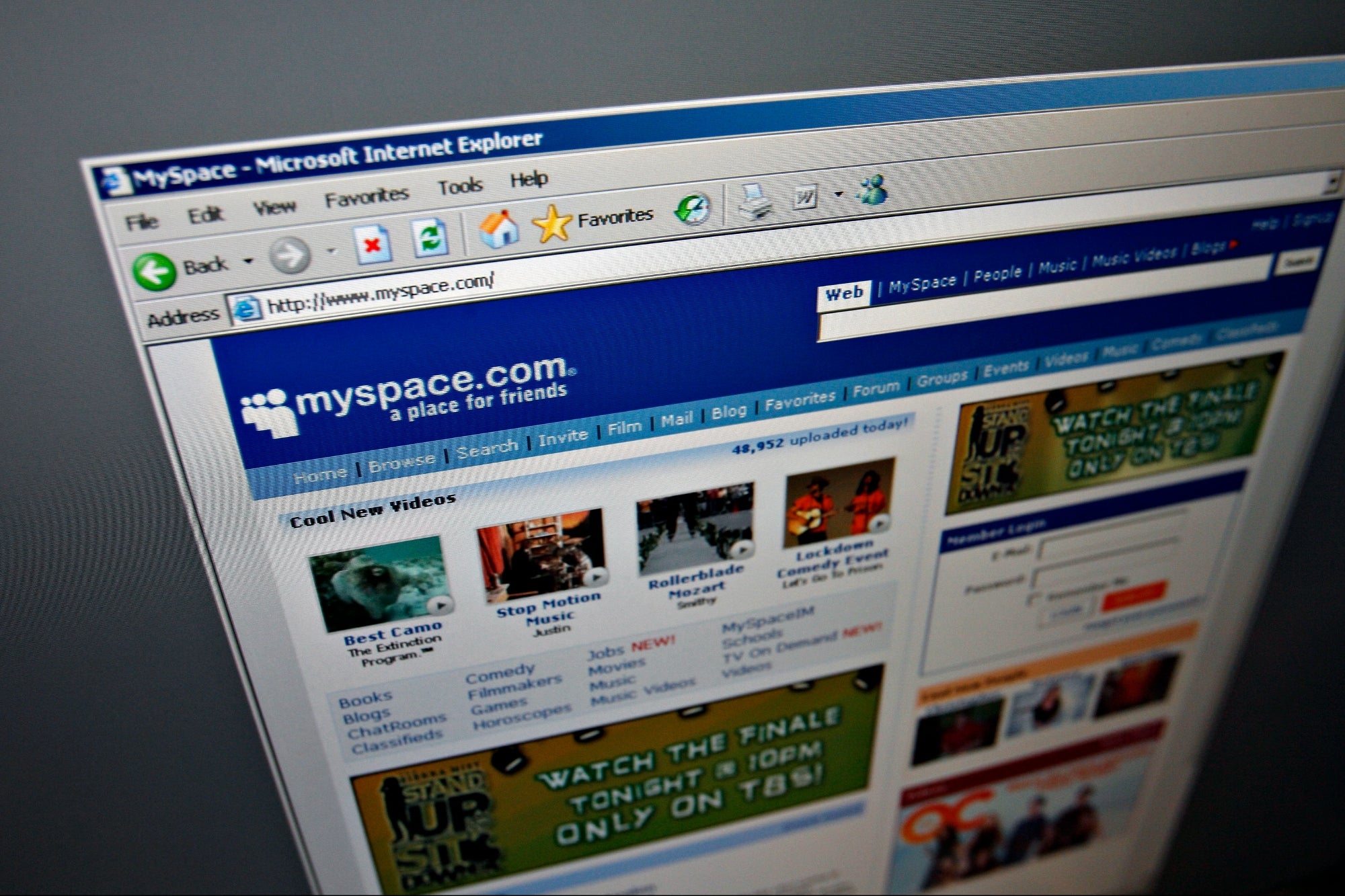A MySpace clone site called SpaceHey passed the million-user mark last week.
Its founder, 22-year-old student Anton Röhm, began working on the website during the pandemic when he was just 18 years old. The pandemic’s restrictions kept Röhm from traveling the world like he originally wanted to before starting university — so he turned to coding for fun.
“I thought hey, why don’t I build something like MySpace back then, but just new and with the basic functions, the creative freedom, and additionally solving the problems that I see on social media nowadays,” Röhm said in a 2021 talk in Hamburg, Germany. “And that’s how SpaceHey came about.”
Related: I Tried Airchat, the Hottest New Social Media App in Silicon Valley — Here’s How It Works
Röhm, who wouldn’t have been old enough to sign up for MySpace when it first launched in 2003, wrote in a reflective post that he created the initial version of SpaceHey in about 3 weeks.
SpaceHey has the same look and feel as MySpace, with profile pages, blogs, and instant messaging. It differs from the original in that users can fully customize their profiles with HTML and CSS code, share posts on other platforms, and embed content like YouTube videos.
Röhm launched the website in November 2020 as “MySpace from around 2007 with a modern tech stack” and it organically gained traction on Product Hunt and Hacker News. Reddit co-founder Alexis Ohanian even made a profile in November 2020.
Finally got one of those SpaceHey profiles everyone has been talking about ??https://t.co/9d7TVWiTGy
— Alexis Ohanian ?? (@alexisohanian) November 30, 2020
Last month, the platform surpassed one million users.
“There’s no algorithm on SpaceHey, no likes, no feed,” Röhm told Fast Company in a Thursday interview. He added that he’s trying to differentiate the platform from other social media like Facebook and X by not having “content sucking you in all the time and demanding your attention.”
Röhm tapped into anti-algorithm sentiment previously voiced by the likes of then-Twitter, now-X founder Jack Dorsey. Dorsey stated in June that “we are being programmed” through discovery algorithms and that the real debate was not about free speech but free will.
Related: Jack Dorsey Says Social Media Has an Algorithm Problem, and Elon Musk Agrees: ‘We Are Being Programmed’
Röhm’s app also joins a growing list of mainstream social media alternatives. The anti-AI app Cara, for example, gained more than half a million users within a week in June by banning AI art. Part of the reason for its momentum is Meta saying that it could use photos, art, and posts across its platforms to train its AI; Cara was an anti-AI Instagram alternative at an opportune time.

